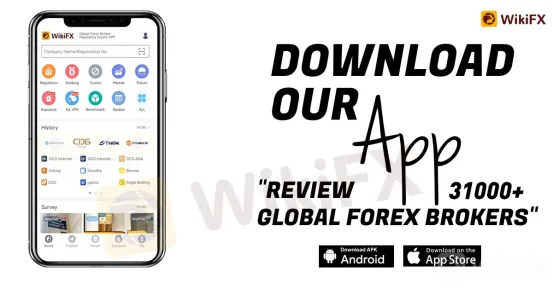简体中文
繁體中文
English
Pусский
日本語
ภาษาไทย
Tiếng Việt
Bahasa Indonesia
Español
हिन्दी
Filippiiniläinen
Français
Deutsch
Português
Türkçe
한국어
العربية
Is Trading Forex in South Africa Risky?
Abstract:If a Forex broker maintains an office in South Africa, the Financial Sector Conduct Authority must regulate it (FSCA). The FSCA is a federal agency that has the right to shut down brokers if it suspects them of defrauding clients or acting unethically, like JP Markets did last year.

If a Forex broker maintains an office in South Africa, the Financial Sector Conduct Authority must regulate it (FSCA). The FSCA is a federal agency that has the right to shut down brokers if it suspects them of defrauding clients or acting unethically, like JP Markets did last year.
However, just because the FSCA has the authority to enforce legislation and close down bad actors doesn't imply it will catch everyone attempting to defraud South Africans. There are dozens of individual con artists that use Forex trading as a front to defraud their victims for every unscrupulous broker. Fortunately, there are a few basic strategies for avoiding scams and locating a trustworthy Forex broker.
Make Your Own Investigations
According to a survey done by TradeForexSA in 2020, Facebook and Instagram were the source of more than half of all Forex scams, with people primarily exploiting social media as a hunting ground for gullible victims. Facebook and Instagram are well-known for their content filtering issues. Both firms have a dismal track record of catching scams before they happen and of banning individuals who have been accused of scamming.
Conducting your own study is the greatest way to avoid falling into this trap. All regulated Forex brokers licensed to operate in South Africa are listed on the FSCA's website. Any broker or anyone providing a financial service in South Africa must register as a Financial Service Provider (FSP), and all reputable brokers will display their FSP number at the bottom of their websites. If you're approached on social media - whether it's Facebook, Instagram, WhatsApp, or Telegram - always do your research before handing them any money.
Check to see if your broker is licensed.
While the FSCA is the regulator in South Africa, there are numerous others throughout the world. According to popular belief, the Financial Conduct Authority (FCA) of the United Kingdom, the Australian Securities and Investment Commission (ASIC), the Monetary Authority of Singapore (MAS), and the Cyprus Securities and Exchange Commission (CySEC) of the European Union are the world's most stringent regulators. You can consider your broker safe to deal with if they are not regulated by the FSCA but have a license from one of these other agencies. Brokers “registered” in nations like St Vincent and the Grenadines, the Marshall Islands, and Vanuatu should be avoided. While these small island states will provide Forex brokers business licenses, they will not grant them citizenship. Trading with unregulated brokers is risky since traders have no means of knowing whether they are being deceived and have no method of getting their money back in the case of a disagreement.

Check to see whether your broker's demo account hasn't expired.
A demo account is available from all Forex brokers. Beginner traders may use demo accounts to access the real market with virtual money, allowing them to learn how to trade, experiment with different assets, and test new methods without risk. Regrettably, some brokers impose a time restriction on their sample accounts, which is often 2-4 weeks. The demo account will expire after this time, compelling new traders to open a real account and trade with their own money. Forex trading is difficult and risky, and it demands a thorough grasp of finance, economics, technical analysis, and the trading platform. It is not a skill that can be picked up in a matter of weeks. Check to see whether a broker's sample account is limitless while looking for a suitable broker. Unlimited demo accounts are important for testing new techniques even when rookie traders advance to utilizing a real account and their own money.
Calculate the Trading Costs of Your Broker
Forex brokers charge fees for providing traders with access to the Forex market. You can calculate the ultimate trading cost by adding all of these costs together. Trading fees differ greatly amongst brokers, so it's usually a good idea to figure them out before you spend any money. While the first deposit is the most evident expense to a trader, it is not a charge. The deposit is the money you'll use to trade, and it won't be given to the broker; instead, it'll be held in a trading account. The spread, commission, and overnight swap fee are the three primary costs levied by brokers.
1. The spread is the difference between an asset's sale and purchase prices, expressed in pips. The narrower - or “tighter” - the spread, the less expensive a deal will be. Some brokers may provide very narrow spreads (as low as 0 pips) in exchange for a fee.
2. When a trade is opened, commission is charged, and when it is terminated, commission is charged again. The “round turn” commission is the sum of these two commissions.
3. The overnight changeover cost is the last charge. The broker charges this cost for keeping a trading position active overnight. Because switch fees differ between brokers, it's usually a good idea to double-check before leaving a deal open overnight.
When trading one lot (100,000 units) of EUR/USD, one typical way to examine trading expenses is to look at the spread and fee. The EUR/USD is the world's most traded currency pair, therefore it should have the lowest spread of any currency pair provided by a Forex broker. A reputable Forex broker will have a EUR/USD spread of less than one pip and no commission, or a EUR/USD spread of 0.1 pips and a round turn commission of 6 or 7 US dollars.
It's vital to note that Forex trading is a high-risk investment, with 60-90 percent of South African Forex traders losing money. Traders must approach the Forex market with care, respect, and a willingness to learn in order to be successful

Disclaimer:
The views in this article only represent the author's personal views, and do not constitute investment advice on this platform. This platform does not guarantee the accuracy, completeness and timeliness of the information in the article, and will not be liable for any loss caused by the use of or reliance on the information in the article.
Read more

Elon Musk Sparks Debate Over Presidential Power and Federal Reserve Independence
Elon Musk has voiced his support for the controversial idea that United States presidents should have a role in shaping Federal Reserve policies. This endorsement aligns with recent remarks from President-elect Donald Trump, who has hinted at revisiting the central bank's independence, a long-held tradition in the nation's financial governance.

Crypto 101: Coins vs Tokens
For those new to the world of cryptocurrency, terms like "coin" and "token" may seem interchangeable. However, understanding the distinction between these two digital assets is crucial for navigating the crypto landscape. Both coins and tokens serve as integral components of blockchain ecosystems, yet they differ in their functionalities, use cases, and the technologies underpinning them.

OANDA Expands TradingView Integration Globally
OANDA completes global TradingView integration, empowering traders in Asia and beyond with seamless access to 1700+ instruments on TradingView charts.

Justice Served: Illegal Investment Scheme Ends in RM28 Million Repayment
The Kuala Lumpur High Court has ruled that a Singaporean businessman, Chan Cheh Shin, must return RM28 million to 122 Malaysian investors after the court determined that his investment operations were conducted illegally.
WikiFX Broker
Latest News
Tokyo Police Arrest 4 for Unregistered FX Trading Scheme
BSP Shuts Down Uno Forex Over Serious AML Violations
ACY Securities Expands Global Footprint with South Africa Acquisition
Rupee gains against Euro
WikiEXPO Global Expert Interview: The Future of Financial Regulation and Compliance
DFSA Warns of Fake Loan Approval Scam Using Its Logo
Consob Sounds Alarm: WhatsApp & Telegram Users Vulnerable to Investment Scams
CySEC Revokes UFX Broker Licence as Reliantco Halts Global Operations
Axi Bids AUD 52M to Acquire Low-Cost Broker SelfWealth, Outbidding Competitor Bell Financial
Crypto Influencer's Body Found Months After Kidnapping
Currency Calculator


